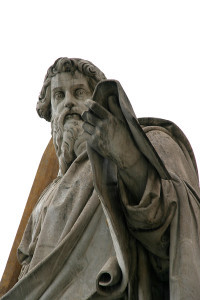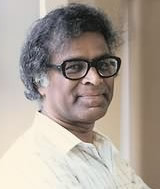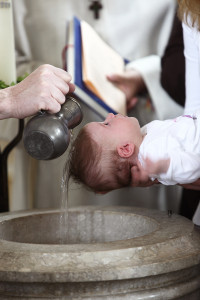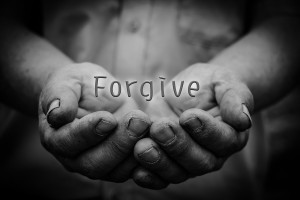Lin Wilder's Blog, page 53
March 7, 2016
Not About Sin
“The prodigal son gospel reading is the perfect, ‘leticia’ for the fourth Sunday in Lent…leticia means joyous…we are happy because we’re now halfway through Lent,” the new Pastor, Fr. Jose Alberto Vasquez at St. Patrick’s Church in Arroyo Grande, California, claimed.
Then he exclaimed that reconciliation is not about sin but forgiveness. Several times, he made that statement but sounding more like a declaration. I am still thinking about his words uttered last night during the Vigil Mass. Particularly that statement about sin.
I should know this. I should know that I go to confession for forgiveness…of course, why else do we go?
And yet, the sequence of the words in Fr. Jose’s homily feel new.
Because we focus on our failures, imperfections, the depressingly persistent disappointments of ourselves. His entire homily was about reconciliation-confession- how to prepare, what to say, what to expect and how to feel once we leave the confessional. In my almost twenty years in this faith, I have never heard a priest discuss this subject, never mind offer a five step template for it. But this man did, using himself and the Prodigal Son as models.
For many of us, the anticipation, worry and anxiety about going to confession consumes far more time and energy than does the actual act itself. And for good reason stated Fr. Juan. One of the priests in the seminary where he studied did what no priest should ever do. When the young seminarian began to list his sins, rather than merely listening, the confessor asked for explanations.
“How could you do that?”
“How many times should did you think that?”
“Why did you do that?”
The result for the young priest was a vow: “I will never ask questions, make judgments, ask questions…I will do what I have been ordained to do, provide absolution…no more and no less.” His ‘5 steps to confession are those of the Prodigal Son.
The fact of our sinful nature is not in dispute, state the wrong, simply and clearly.”I have sinned against God and you, I no longer deserve to be called your son.”
Prepare by deciding the answers to these questions. “What do I want to say?” “What are the things I need to say?” “The things that are disturbing my peace?”
Feel sorrow.
Be willing to do penance. “I no longer deserve to be your son.”
Resolve never to commit the sin again.
Most of all, consider the response of the betrayed father. “Kill the fatted calf!! My son who was dead now lives.!”
But while he was still a long way off, his father saw him and felt compassion, and ran and embraced him and kissed him. And the son said to him, ‘Father, I have sinned against heaven and before you. I am no longer worthy to be called your son.’[bBut the father said to his servants,‘Bring quickly the best robe, and put it on him, and put a ring on his hand, and shoes on his feet. And bring the fattened calf and kill it, and let us eat and celebrate. For this my son was dead, and is alive again; he was lost, and is found.’ And they began to celebrate.
The post Not About Sin appeared first on Lin Wilder.




















February 29, 2016
Cheap vs Costly Grace

They are terms I have never considered: cheap or costly grace. Phrased like you would a commodity.
Exactly the phrase used by Martin Luther to describe the problems with the Roman Church. At least according to Dietrich Bonhoeffer in his book The Cost of Discipleship.
After completing Eric Metaxas’ splendid biography of the German founder of the German Confessing Church, Spy and Martyr, Bonhoeffer, I wanted to understand more about this man who understood Christianity in a way that few of us do. In the last part of his book, Metaxas describes the perversion of one of the more provocative phrases penned by the theologian, Bonhoeffer, ‘religionless Christianity.’ Bonhoeffer writes …”We are moving toward a completely religionless time, people as they are now, simply cannot be religious anymore. Even those who honestly describe themselves as religious do not in the least, act up to it, an so they presumably mean something quite different by religious.”
What Bonhoeffer means here, Metaxas carefully explains, is not real Christianity, but the Christian ‘light,’ the ‘feel good,’ (my words) ersatz religion that Bonhoeffer had contested though out his life. The theologian witnessed the failure of this religiousity during a time of catastrophic evil for Germany and for western civilization. And wondered if these times were calling for a Christocentric Lord, one who is not contained by the Tabernacle and Sunday mornings but was moving into the world. Taken out of context, Bonhoeffer’s phrase has been used frequently by atheists arguing against religion and Christianity.
Bonhoeffer was murdered before he could further write about what he had in mind but I think of the similarity between Teilhard de Chardin’s Cosmic Christ when I read and re-read what Bonhoeffer wrote almost sixty years ago.
So what about cheap versus costly grace?
According to Bonhoeffer, the Roman church’s response to the cultural waxing and waning of faith was monasticism. At least, there were men (and women) who possessed the fortitude to live according to authentic Christianity. But Luther wanted that costly grace found in the monasteries to flow over the world, therefore he walked away.
Strangely, I have never before thought of faith as something which ebbed and flowed. But clearly Luther and Bonhoeffer did:
As Christianity spread, and the Church became more secularized, this realization of the costliness of grace gradually faded. The world was Christianized, and grace became its common property.
When I read of the Israelites story of returning and leaving their God through the millenia, I considered these ‘phases’ as specific to the Jews. But now, reading Bonhoeffer and his interpretation of Martin Luther, I see it all very differently. This love story between God and humanity is replete with loss, betrayal and confusion.
The real trouble is that the pure Word of Jesus has been overlaid with so much human ballast— burdensome rules and regulations, false hopes and consolations— that it has become extremely difficult to make a genuine decision for Christ..
Is there not after all an element of truth in the contention that our preaching is too dogmatic, and hopelessly irrelevant to life? …CHEAP GRACE is the deadly enemy of our Church. We are fighting to-day for costly grace.Such grace is costly because it calls us to follow, and it is grace because it calls us to follow Jesus Christ. It is costly because it costs a man his life, and it is grace because it gives a man the only true life. It is costly because it condemns sin, and grace because it justifies the sinner. Above all, it is costly because it cost God the life of his Son: “ye were bought at a price,” and what has cost God much cannot be cheap for us. Above all, it is grace because God did not reckon his Son too dear a price to pay for our life, but delivered him up for us. Costly grace is the Incarnation of God.
Bonhoeffer, Dietrich (2012-08-07). The Cost of Discipleship (Kindle Locations 495-499). Touchstone. Kindle Edition.
The post Cheap vs Costly Grace appeared first on Lin Wilder.




















February 22, 2016
St Paul, The Galations and Me

“You stupid, senseless Galations!”
One of the last Divine Office readings before Ash Wednesday is from St. Paul’s Letter to the Galations. He minces no words and we can practically see the spittle collecting at the sides of his mouth as we read the Apostle’s exhortations. Paul is admonishing the new community in the remote province in current day Turkey that the Mosaic Law does not apply. And making his displeasure with Peter’s ‘dissembling’ known for eternity. The reason for Paul’s anger at Peter and the rest of the Jews is they have backslid into the comfort of the law. Or rather that Peter has chosen not to confront the error of the Jewish believers who simply could not let go. In this case, they could not accept that uncircumcised Gentiles could be saved.
You senseless Galations! Who has cast a spell over you?…you before whose eyes Jesus Christ was displayed on his cross? I want to learn only one thing from you; how did you receive the Spirit? Was it through observance of the law or faith on what you heard? How could you be so stupid? After beginning in the spirit are you now to end in the flesh?…
I understand.
Like many of us, I suspect, I have a love/hate relationship with rules and structure. While appreciating the dangers implicit in order and structure, like close-mindedness and rigidity, the reassurance of their existence is seductive. In the case of committed Christians, things like tithing, attending Sunday services or Mass, feeding the homeless, saying the Rosary, the Divine Office are just a sampling of the acts of Christians.
Were I a male Jew around two thousand years ago, I can easily understand the Jewish followers of Christ who wanted more from the former pagan Gentiles, something difficult, painful, a real and lasting sacrifice. More then mere words.
But no one understood the law better than Paul. Chief Pharisee, the most zealous of the persecutors of those early followers of Christ. Paul understood that heart-breaking truth; the law was nothing. All of the Masses and alms and sacrifices are nothing. Without love.
But Paul did not write the most popular Bible verse read at weddings today to describe the love between a man and woman:
If I speak in the tongues of men or of angels, but do not have love, I am only a resounding gong or a clanging cymbal. If I have the gift of prophecy and can fathom all mysteries and all knowledge, and if I have a faith that can move mountains, but do not have love, I am nothing. If I give all I possess to the poor and give over my body to hardship that I may boast, but do not have love, I gain nothing.
Love is patient, love is kind. It does not envy, it does not boast, it is not proud. It does not dishonor others, it is not self-seeking, it is not easily angered, it keeps no record of wrongs. Love does not delight in evil but rejoices with the truth. It always protects, always trusts, always hopes, always perseveres.
The apostle Paul wrote these words to another of his communities who were fighting with one another, arguing about the silly things most humans do. This lyrically poetic passage describes Christians and how we each must behave to one another, then and now. Including those we don’t like, even our enemies.
Rules are infinitely easier, even painful ones, like circumcision.
The post St Paul, The Galations and Me appeared first on Lin Wilder.




















February 15, 2016
Peter and the Keys

Once Peter has been handed the keys to the Kingdom, Jesus harshly-even cruelly, rebukes him for his most understandable response to hearing Christ predict his own horrific suffering, rejection, humiliation and execution. Mark writes that Peter “took him aside and began to rebuke him.” We infer that Peter took Jesus away from the other disciples to privately argue with this most appalling prediction.
But Christ chooses to answer Peter publicly, taking the argument back in front of all of the disciples and proceeds to call the man to whom he has just given the Keys to his Kingdom, Satan. “Get thee away from me Satan..” sounds almost vicious until we consider what Jesus-the man-knew and understood, abysmally alone in this knowledge having failed again and again to help his friends see what only he could see.
It seems to me that for those of us who believe in God, Jesus as God is no problem. But we stumble when we consider Jesus the man- “being born in the image and likeness of man, he was known to be of human estate.” That’s where our minds simply rebel. We tend to focus on Peter when reading and pondering this passage; the man who perhaps reminds us of ourselves with his impetuosity and impulsiveness. And we wince at the harshness of Christ’s rebuke, not thinking about the feelings which impelled it.
It is just this humanity which savagely rebukes Peter’s typically hasty, volatile response to Christ. We are taught that Jesus willed this passion, this cross. But as we close in on Gethsemane during these forty days of Lent, we can sense the man, his humanity, the awful cost to Jesus through pondering this passage.
“Jesus was no cold Superman, ” Guardini writes, ” he was more human than any of us. Entirely pure, unweakened by evil, he was open and loving to the core. His ardor, truth, sensitivity, power, capacity for joy and pain were unlimited, and everything that happened to him happened in the immeasurableness of his divinity. What then must have been Jesus’ suffering!…
…” Jesus’ will to the Passion is not to be broken, but at the thought of it, his whole frame shudders in the grip of unspeakable pain. We feel it in his furious reply to Peter, when the disciple, well meaning but puny of heart, tries to dissuade him…”
“The will to sacrifice stands fast but it has been torn from Jesus’ human nature and is throbbingly sensitive; he can bear no tampering with it.”
The post Peter and the Keys appeared first on Lin Wilder.




















February 8, 2016
The End of Work?

Ever since the industrial revolution, futurists have been forecasting the end of work. Recently, journalist Derek Thompson wrote in Atlantic Monthly about the immanence of widespread joblessness from the perspective of Youngstown, Ohio. For most of the last century, Youngstown boasted one of the more prosperous economies in the country, mostly due to the flourishing steel industry. But that all changed radically when much of steel production was transferred overseas. Five years after Youngstown Steel shut its doors, the city of Youngstown lost 50,000 jobs and over a million in wages. Predictably, drug and alcohol addiction and suicide rates quadrupled, over four prisons were built in the city and the term ‘regional depression’ was coined to describe areas like Youngstown. And hoardes of men at the peak of their life had no work nor any viable prospect for a job.
To counter those who deny that technology replaces people with robots and software or who claim that only marginal jobs are displaced, Thompson cites some sobering facts. In 1964 AT&T was the major industry in America with a financial war chest of 267 billion in today’s dollars and 758,611 people. Google, arguably the top company of the 21st century is worth 370 billion but with a mere 55,000 employees. Less than ten percent of AT&T’s work force at its highpoint. To illustrate the speed with which everything can change,Thompson uses the horse to explain what could be happening in the American economy. For millenia, man relied on the horse for everything from transportation, farm work to war. But then around the 1920’a, the automobile, tractor and tank were invented. Initially there was widespread resistance to the new inventions; most of us dislike change, especially change of this magnitude. But despite the opposition to the new inventions, within three decades the horse as essential work partner became obsolete. No longer were horses central in man’s favorite activities of fighting and farming. In the United States alone, the horse population dropped by 50 percent by the 1930’s and 90 percent by the 1950’s.
Economists agree that massive changes in technology have not led to extensive unemployment. Yet.
But will that continue as robotic technology encroaches more and more into traditional careers like bookkeeping and the operating room? The fear of humans being replaced by robots is not new- older than many of us realize, in fact.
The term robot was created not by industry or science but by a playwright named Karel Capek and was introduced in his 1920 play, R.U.R. (Rossum’s Universal Robots.) The playwright, a Czech, writes of an American businessman who discovers the secret to work-the robot. While an undergraduate English major years ago, we were assigned the play and all these years later, I recalled the impact it made on me. Close to a hundred years ago, Capek wrote about the maxims of productivity. Here the wealthy American business man Domin explains the facts of business to young Miss Glory:
Ah now, young Rossum; that was the start of a new age. After the age of research came the age of production. He took a good look at the human body and he saw straight away that it was much too complicated, any good engineer would design it much more simply. So he began to re-design the whole anatomy, seeing what he could leave out or simplify. In short, Miss Glory . . . I’m not boring you, am I?
Helena:No, quite the opposite, this is fascinating.
Domin: So young Rossum said to himself: Man is a being that does things such as feeling happiness, plays the violin, likes to go for a walk, and all sorts of other things which are simply not needed.
Helena:Oh, I see!
Domin: No, wait. Which are simply not needed for activities such as weaving or calculating. A petrol engine doesn’t have any ornaments or tassels on it, and making an artificial worker is just like making a petrol engine. The simpler you make production the better you make the product. What sort of worker do you think is the best?
Helena:The best sort of worker? I suppose one who is honest and dedicated.
Domin: No. The best sort of worker is the cheapest worker. The one that has the least needs. What young Rossum invented was a worker with the least needs possible. He had to make him simpler. He threw out everything that wasn’t of direct use in his work, that’s to say, he threw out the man and put in the robot. Miss Glory, robots are not people. They are mechanically much better than we are, they have an amazing ability to understand things, but they don’t have a soul. Young Rossum created something much more sophisticated than Nature ever did – technically at least!
Could there be a different ending to what reads like an imminent disaster? We’re reminded that research has revealed that many people hate their jobs. The dignity of human work implied by the playwright is absent for many men and women in the daily drudgery of their jobs. Could the loss of half to two-thirds of current jobs end up being a positive outcome? Media theorist Douglas Rushkoff argues that unemployment is an invented problem. Invented by politicians seeking our votes. Most provocatively Rushkoff asks this.
The question we have to begin to ask ourselves is not how do we employ all the people who are rendered obsolete by technology, but how can we organize a society around something other than employment? Might the spirit of enterprise we currently associate with “career” be shifted to something entirely more collaborative, purposeful, and even meaningful?
Now three years into my third career as a novelist, I see clearly his point.
The post The End of Work? appeared first on Lin Wilder.




















February 1, 2016
Being Versus Action: Reflection

The tension between ‘Being’ and ‘Action’ is fundamental. We know the importance of balance in our work and the need to take time to simply ‘be.’ But for many of us, like Martha in the Gospel, activity is what we do, essential to our nature. Recently the razor’s edge between activity and non-action has cut a bit more deeply, all because I completed the first draft of my third novel and sent it to my editor. When I did not feel the sense of accomplishment and an ‘atta girl’ that I know I should feel, I decided to force myself to take some down time before starting the next book. Time to relax, think and for what a friend calls ‘sacred leisure.’ But I’d much rather be working on the next story. Not writing is hard. Thinking is harder.
Close to five hundred years ago, Blaise Pascal wrote that “All of humanity’s problems stem from man’s inability to sit quietly in a room alone.” Over the years since I first heard this statement, as a young college student, I have quoted the philosopher, usually somewhat smugly. And so it was with interest when a recent email caused me to read about psychological experiments which concluded that many of us prefer electrical shocks to sitting in a room while doing nothing.
I understand. There are few things I dislike doing more than researching and organizing materials, documents for my income tax preparation. This year, our new accountant offers a small discount to those clients getting their act together sooner than later. It was with relief this week that I spent the three days of my alleged thinking time happily occupied at the computer with the busy work of last year’s writing expenses.
All of these events have created a wholly new way of understanding of why Christ admonishes Martha with his seemingly hurtful, ‘Mary has chosen the better way, it will not be taken from her.” Being born in likeness of men, Jesus understands the discomfort, unease, even the anxiety caused by stopping. Sitting still. Perhaps all of those whole nights spent alone up in the mountains were battles similar to our own. Begging for patience, for understanding, for wisdom, continuing to empty himself out, making room for his divinity. Surely from his days as a young child, he took note of the differences between his mother, Mary, from the others. Her silence, stillness, a quality which must have appeared to be a listening.
The post Being Versus Action: Reflection appeared first on Lin Wilder.




















January 25, 2016
Only One Cause of Unhappiness

“There is only one cause of unhappiness: the false beliefs you have in your head, beliefs so widespread, so commonly held, that it never occurs to you to question them.”
― Anthony de Mello
The post Only One Cause of Unhappiness appeared first on Lin Wilder.




















January 18, 2016
Number 12- Brady

A friend from church decided to give me Brady’s Pro Ball 2014 shirt several weeks ago. The shirt sits on proud display in our hallway to be brought out when a friend with an interest in football visits. Or sometimes those with no interest.
Joe , giver of the shirt, joined us for one of the Patriot playoff games a few years ago and while watching the game, I explained the reasons I admired the guy. Joe agreed and was interested in a book about Brady’s background so I gave Joe a biography written about him following his second Super Bowl win.
My husband John and I spent much of this past weekend watching the playoffs. Saturday, when the Patriots won, we were delighted. Probably more than delighted, ecstatic is not a huge stretch. I’ve been thinking about the reasons I continue to follow the quarterback and listen with interest to anecdotes about his workout regime, diet, overall attitude.
Once I spent time learning about the game of football and some of the men who play it, I decided that football is a metaphor for life. And Tom Brady’s vicissitudes reflect anyone’s life. Before you fall off of your chair laughing about my claim that you have a lot in common with a thirty-eight- year old multimillionaire with a seemingly prefect life, wife and body, read on for just a second, please.
Think for a few minutes about how this guy got his start and what has happened to him during his fourteen year career with the Patriots.
Numerous athletic failures in junior and high school
Benched for entire college career at University of Michigan
199th draft pick in 2000
Ruptured ACL and MCL in 2008 followed by severe crippling infection
And most famously, Deflategate
Rather than adopting a surly, defensive stance against the still unproved but widely believed alleged claims of cheating, Brady seems to do what he must have learned as a very young teen. Get to work and work harder than ever. This was what I’d read in the biography and later explained to Joe and merited this cool gift of the display Pro Ball shirt.
Each of us can identify with criticism perhaps unjustified. And we can recall times when our successes evoked jealousy and worse. So reading about this athlete’s commitment to a Paleo Diet, rigorous training so obsessive that Brady does not even drink alcohol.
So when I watched this thirty-eight year old play better than he ever has, yes, I was ecstatic. His secret is no secret at all. Success and winning big happen because of persistence, hard consistent work, a refusal to believe the negative opinions of others and a fire in the belly for excellence. A metaphor for life-yours and mine, whatever our age.
The post Number 12- Brady appeared first on Lin Wilder.




















January 11, 2016
Our Rescue Dog Seymour- My Christmas Present
Adopting a rescue dog named Seymour was not the plan. Ever since that March night when our red male Dobie dropped dead in front of my dog Shadow and me I have lurked on countless dog rescue sites specific for Dobermans. I have learned over the last sixteen months, just how massive is the number of abandoned dogs in this country. Although I had read and heard in conversations with breeders over the years about the vast numbers of great dogs who are abandoned by their owners for reasons incomprehensible to me, an up close and personal experience with a rescue shelter has engendered enormous respect and admiration for those thousands of men and women running shelters.
My plan had been to rescue one of the many amazing red male Dobermans at the shelter in southern California I had discovered and began to support last year. Once we drove the five hundred mile plus trip to meet Ardis and see her operation, I was hooked and trusted that it was merely a matter of time until we became a pack of four again.
Over several trips down to Fillmore, meeting and talking with Ardis and Colleen at the Saturday adoption days, we became fans of the amazing work and love these two shower on their Dobie rescue boys and girls. We learned too of the heartbreak caused when people return the dog who should have been granted his forever home. Like Archie. Like Apollo. And countless others who through no fault of their own are brought back to the shelter.
I happened to be there one hot Saturday morning when a couple brought back Apollo, a stunning red male. When I saw the couple with two Dobermans standing under the tree, I went over to laughingly ask if they were there to adopt a third Dobe. And had to walk away when he replied that they were here to bring Apollo back. The dog had been with them for two years but had bitten the baby when the child crawled onto Apollo’s bed. ‘What can we do?” asked the man rhetorically. “We have to protect our baby.”
I had wondered why the beautiful dog would not venture out behind the man who was leaving him. The Dobe stood behind the man’s legs and merely hung his head when I called to him the first time. But at the second ‘Hey beautiful boy’ from me, he looked up at me. And it was written all over his face. He knew they were bringing him back here. He knew that he would not go home with his family. I walked away because I was crying, wondering how did Ardis and Colleen stand this awful heartbreak?
One of the first things we animal owners learn- or should learn- is that a child may be seen as a predator. Especially when the predator crawls onto the only space of the dog, his bed. And yet, one of the more common reasons for abandoning dogs like Apollo are because the dogs have not been socialized to the children. Exactly like Seymour, who growled at someone in his family.
Around five weeks ago, my husband and I were at the Petco in Reno. And there lay Seymour with a gentle leader on his snout, quietly looking around at the people walking by. Laying there on the floor under the feet of a man I learned later had founded the High Sierra Animal Center. 
“Can I pet your dog?” I asked the man.
“Sure,” he replied.
I leaned down and Seymour stood on his hind legs and licked my face.
I was done.
The timing for the new doberman had just not been right despite a few conversations about several beauties at Dobie and Little Paw Rescue whom I had fallen for (including Apollo) but my husband was not ready.
To my stunned surprise, early the next morning after Seymour had climbed inside my heart, John said ‘If that little cute dog is still available, he’ll be your Christmas present.’
Five weeks later, Shadow, the shepherd mix who adopted us about ten years ago, who watched two Dobies drop dead, has accepted this new little guy, despite the fact that he looks nothing like a Dobie.

The post Our Rescue Dog Seymour- My Christmas Present appeared first on Lin Wilder.




















Baptism: His and Ours

Baptism. Most us were not aware of what was happening. Our parents made the decision for us when we were blissfully unaware. And in this twenty-first-century, more and more parents choose not to baptize their child. The stated reasons vary. But these are a sample of those I hear and read. ‘We don’t need church to be spiritual’, ‘we can pray anywhere’. ‘The woods is our chapel’. ‘Nature is my church’. “I was brainwashed as Catholic, I want my baby to make his own decision, rather than be forced into a religion he doesn’t believe in.’ Some compelling and others merely sound angry.
The Christian liturgy celebrates the Baptism of the Lord as the feast day which ends the Christmas season. Last Sunday, we celebrated Epiphany. Seven days later, the infant becomes a grown man about to begin his mission. For much of this week, I’ve been pondering what the church teaches about Epiphany and why the manifestation of Christ is three-fold.
The three seekers who travel a great distance, at great risk, to adore an unknown god?
The wedding at Cana where the jars of water intended for washing feet becomes the ‘finest wine.’
And today, His Baptism by the baptizer, John. Where the heavens are ‘torn open…and the spirit descending on him like a dove and a voice came down from heaven,’ You are my beloved son, in you I am well pleased.’
There are a myriad of questions, these are merely a sample.
Why is the peculiar interaction with his mother included?
Where, when told that the people hosting the wedding are out of wine Christ replies almost rudely, ‘Woman, what does this have to do with me? My hour has not yet come.” Mary unflappably tells the stewards to ‘do whatever he tells you”
Why did he say he wouldn’t and did it anyway?
Why did he ask John to baptize him?
Recently we rescued a young dog and young dogs require lots of exercise. This morning in the sleet I pondered all these events of this past week as the dogs and I walked our four mile trek in the middle of nowhere. And considered baptism in a way I never had. As a sacrament meaning infused with the person of Christ. Because of the intensity of my focus, I walked on holy ground. The sleet seemed permeated with his presence. The very air was redolent with it. Normally my walk or hike or workout is just that. I walk on dirt and rocks and am unaware that the world and creatures in front and beside me are infused with Christ. I need sacraments to see that way.
But there are some who walk on holy ground with each step taken in their life. Mary was like that. So infused with the presence of God that she pre-empted his schedule. Surely she knew what this request would cost her and him- no less than everything.
But she did it anyway. Love for these hosts who had run out of wine on the third day of what was most likely a seven day event. Concerned with the mundane details of hospitality.
And his initial refusal? Perhaps a foreshadowing of the request in the Garden? A most understandable, entirely human reluctance to begin any sooner than necessary.
Maybe, just maybe, the baptism was as necessary for him as for us. Perhaps he needed to hear the heavenly words of love to stay focused on the holy ground he walked on. Maybe those words, This is my beloved daughter applies to you and to me? In us is He well pleased.
The post Baptism: His and Ours appeared first on Lin Wilder.












































